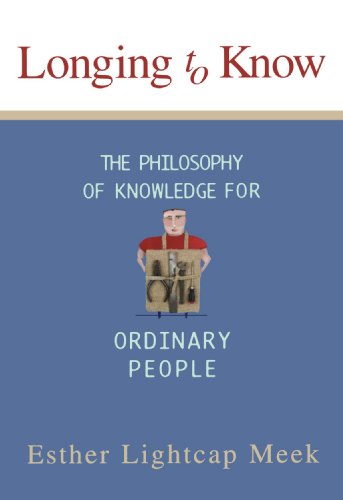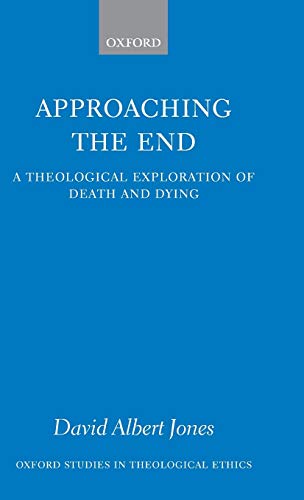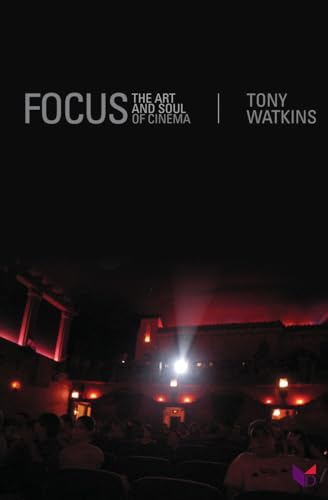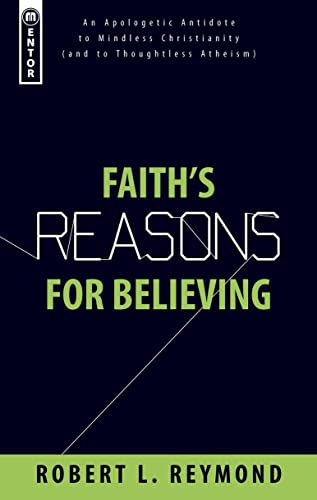Longing to Know: The Philosophy of Knowledge for Ordinary People
Written by Esther L. Meek Reviewed By Ted NewellAllan Bloom opened his trenchant 1987 criticism of American higher education, The Closing of the American Mind, with the words, “There is one thing a professor can be absolutely certain of: almost every student entering the university believes, or says he believes, that truth is relative.”
The roots of this condition are long and deep, as Bloom showed so memorably. Nor has higher education’s reigning philosophy altered much in the years since. If anything, caution at affirming truth has become more deeply woven into the spirit of the age and is the current orthodoxy. Even within universities or seminaries based in principle on a counter affirmation, students hesitate before a peer’s claims and may be content with “That’s what they believe.” Since students live in the world, they bring media and public school taboos to further education.
Esther Meek has written an unusual book to address the state of affairs. Meek believes that students can benefit from “epistemic therapy.” Epistemology is a word to strike fear into many undergraduates, but she uses no technical terms, and the book is so filled with clear prose and apt illustrations from everyday life that it will be valuable for second-year up to fourth-year students. Nor does she adopt an insider’s stance. The book provides a from-the-ground-up account of knowing by showing significant aspects of the knowing act that are tacit: taken for granted and usually overlooked.
If the last sentence rings a bell, it could be because recognition of “tacit dimension” was urged by Michael Polanyi, the Hungarian chemist-turned-philosopher, and was the title of one of his books. Knowing is always personal, but the commitment of persons in a kind of faith-act need not lead us to relativism nor limit the validity of the knowledge. Like Meek, who wrote her dissertation on Polanyi’s realism, Polanyi himself was concerned for a therapy, one for a European civilization riven by ideologies and successive world wars and without a basis for moral reconstruction. Unless the modern world could move past its limitation of knowing to the scientific method, civilization was in peril. Students live out the effects of reduced ideas of knowledge, and the therapy is still much needed.
Meek’s method is to expound a key statement: “Knowing is the responsible human struggle to rely on clues to focus on a coherent pattern and submit to its reality,” and she divides the key statement into four parts. Part I, “Knowing,” explains the unreasonableness of modern limitations to knowing. Part II, “… Is the Responsible Human Struggle,” shows that a commitment of the situated knower is always a part of coming to know; faith is always inherent in an attempt to know. Meek surfaces tacit facets of knowing, facets taken for granted in a phenomenology of the knower’s attempt to know. Part III, “… To Rely on Clues,” highlights the inescapable human search for a coherent world and the role of clues for the knower who eventually pieces together a world. Part IV, “… To Focus on a Coherent Pattern and Submit to Its Reality,” finds confirmation of the approach in the deep explanatory power of the picture. We ought to seek contact with reality rather than seek the correspondence of words with things; we should accept confidence as a reasonable goal in knowing rather than aim for a certainty that has by now proven to be stultifying.
The beauty of Meek’s approach is that she teaches by everyday-life experiences. For instance, Meek uses her knowledge of a mechanic she rarely sees to illuminate trust and its practical confirmatory results in her old car. In the initial act of knowing, she depended on the authority of others to guide her to this mechanic. She shows how guides enable us to see things that otherwise we would miss. Coming to see is an active process, like the act of solving a Magic Eye puzzle; we must focus beyond or through the data to be able to see. Our stretching to know is like drawing a vector through a single piece of information, like “laying out” for a frisbee. Even the way that pregnant Meek’s periodic “gastro-intestinal pangs” led to her realization that a child was on the way is used to serve the reader.
Meek accounts for genuine knowledge as a system of clues. Her account of mistakes does not lean hard on our propensity to deceive ourselves, but she explains how we suppress clues to avoid the God who would give sovereign meaning to our lives. The book, however, will not be entirely satisfying to some theological readers. Meek admits that fallibility is a possibility we should learn to accept (chap. 20), but she does not square the admission with how Christ is to be proclaimed definitively as the way, the truth, and the life.
Despite this, the book is a superb work of apologetics. Longing to Know is a healing piece. Meek unlocks whole domains of experience that have been devalued in modernity. She restores the reader’s sense of the greatness and defensibility of being a Christian. The significance of beauty comes home. Meek speaks of the way students are liberated and transformed by a more whole understanding of knowledge, and I can well believe it. For epistemic therapy there is nearly nothing else so accessible.
Ted Newell
Ted Newell
Crandall University
Moncton, New Brunswick, Canada
Other Articles in this Issue
Though his primary concern was how to persuade people from diverse backgrounds to embrace the gospel of Jesus Christ (1 Cor 9:12, 23), Paul, nonetheless, embodies a principle common to all who would provide leadership to a community comprised of a multiplicitous collection of rigid truth claims and behaviors...
The Ethnic Enemy—No Greek or Jew . . . Barbarian, Scythian: The Gospel and Ethnic Difference
by Keith FerdinandoWhatever 'globalisation' may be, it has been accompanied by insistent and sometimes violent affirmations of ethnic identity...
Despite a small flurry of attention over the past decade, Adolf Schlatter (1852–1938), Tübingen professor of New Testament and author of more than 440 written works, remains one of the most neglected yet illuminating theological voices of the past one hundred years...
Commentators have customarily interpreted Phil 2:12 as a reference to "working out" one's personal salvation...
Salvation History, Chronology, and Crisis:1 A Problem with Inclusivist Theology of Religions, Part 1
by Adam SparksA fundamental requirement in an inclusivist understanding of the relationship between Christianity and other religions is evidence of God's salvific activity outside of any knowledge of Christ...






